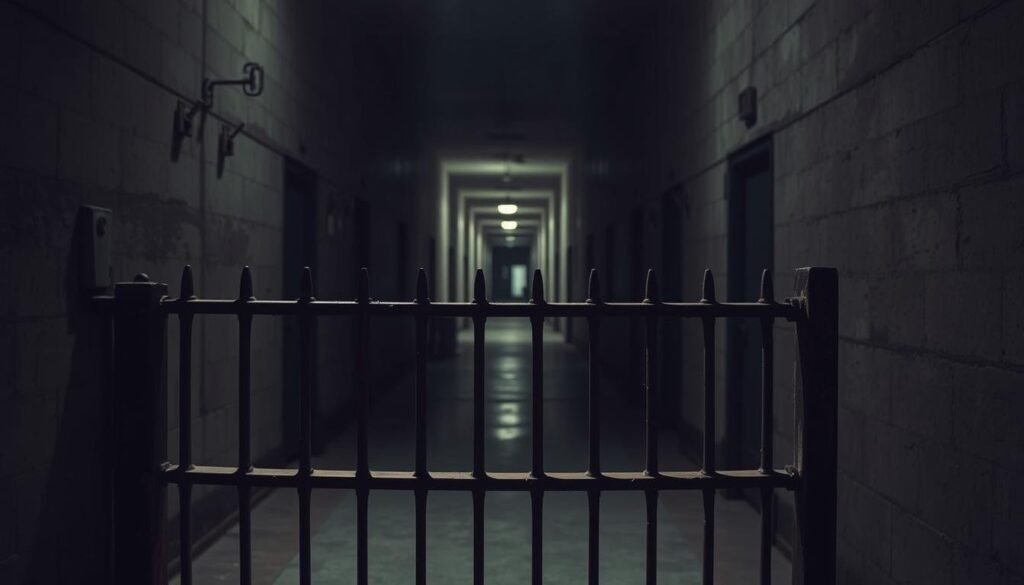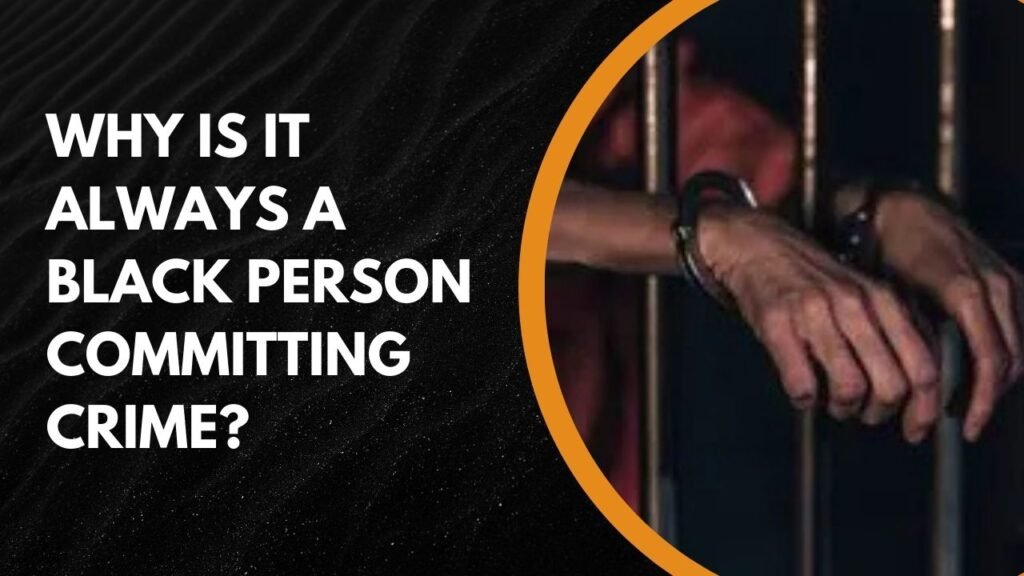Legal Consequences of Escaping from Prison: Escaping from prison is not just a moral issue. It also comes with severe legal consequences. In the United States, prison escape laws are strict. The penalties can be harsh.
So, what happens if someone escapes from prison? The legal outcome can be tough. It can lead to more charges and longer sentences. Knowing these laws is key to understanding the consequences.
Prison escape laws are strict. The legal system views such actions seriously. This often means longer prison time.
Contents
- 1 Understanding Prison Escapes in the American Legal System
- 2 Is It a Crime to Escape from Prison?
- 3 Penalties and Sentencing for Prison Escapes
- 4 Additional Charges Related to Prison Escapes
- 5 Variations in State Laws Regarding Prison Escapes
- 6 Legal Defenses in Prison Escape Cases
- 7 International Perspective: Prison Escapes in Other Countries
- 8 Understanding the Consequences of Prison Escapes
- 9 FAQ: Legal Consequences of Escaping from Prison
- 9.1 What are the legal consequences of escaping from prison in the United States?
- 9.2 Is escaping from prison considered a felony?
- 9.3 Can you be charged with additional crimes for actions taken during a prison escape?
- 9.4 How do state laws regarding prison escapes differ?
- 9.5 Are there any valid legal defenses for prison escape cases?
- 9.6 How do international laws and penalties for prison escapes compare to those in the United States?
Understanding Prison Escapes in the American Legal System
It’s important to know the legal effects of prison escapes in the U.S. legal system. These escapes are rare but challenge the U.S. correctional system a lot. The laws about these incidents are complex, involving both federal and state rules.
Looking at the history of prison escapes in the U.S. helps us understand today’s laws. In the past, prison breaks were seen as big crimes. They often led to more charges and harsher penalties for escapees. The legal outcomes for prison escapes can be very tough, including longer sentences and harsher prison conditions.
Nowadays, the laws about prison escapes are still changing. Courts and lawmakers keep looking at how to handle these cases. As we dive deeper, it’s clear that knowing these legal details is key to understanding the big picture of prison escapes in the U.S.
Is It a Crime to Escape from Prison?
For centuries, escaping from prison has been seen as a big crime. Law enforcement has always worried about prison breaks. Different laws around the world have treated these acts in various ways.
So, is escaping from prison a crime? We need to look at the laws about prison breaks. In the United States, both federal and state laws say it’s a crime.
Historical Context of Prison Escape Laws
Over time, laws about prison escapes have changed a lot. At first, escaping was seen as a very serious crime, with harsh punishments.
To understand these changes, let’s look at some important moments in prison escape laws:
| Time Period | Law/Policy | Punishment for Escape |
|---|---|---|
| Early 20th Century | Strict laws against escape | Severe punishment, often corporal |
| Late 20th Century | Reformative laws | Additional imprisonment |
| Present Day | Varied state laws | Range from fines to extended sentences |
As you can see, the punishments for escaping have become more complex. This reflects changes in how society views crime and justice.
Knowing the history of prison escape laws helps us understand why it’s a crime. It also shows how laws have evolved to deal with these situations.
Penalties and Sentencing for Prison Escapes
Escaping from prison comes with severe penalties that can change your future. This serious offense can add more time to your sentence. The penalties vary based on the place, the escape’s details, and your past crimes.
Prison escape sentences aim to punish and prevent others from trying. The law looks at if the escape was violent or not, and if anyone got hurt. If you used violence or hurt others, you’ll likely get a harsher sentence.
In many places, escaping from prison is a felony. This can mean a lot of extra prison time. You might also face fines or have to be supervised for longer after you’re released. The court will look at your original crime, how you acted in jail, and the escape’s planning.
To show what can happen, here are some possible outcomes of a prison escape:
- More prison time for the escape crime
- Higher security and stricter watch
- Longer supervision or probation after release
- Fines or money paid back because of the escape
Knowing these penalties helps you understand the risks of trying to escape from prison.
Additional Charges Related to Prison Escapes
Escaping from prison can lead to many legal issues. You might face charges for actions during the escape. This includes violence against guards or damage to property, making your legal situation more complex.
The legal ramifications of prison escape can be severe. Additional charges include:
- Assault on correctional officers or other individuals
- Destruction of property, such as breaking through walls or fences
- Theft or unauthorized use of vehicles
| Charge | Description | Potential Penalty |
|---|---|---|
| Assault | Physical harm or threat to correctional officers or others | Additional 5-10 years |
| Property Damage | Destruction of prison property during escape | Fines and/or additional 2-5 years |
| Theft | Unauthorized use or theft of vehicles during escape | Additional 2-5 years |
Understanding the prison escape consequences is key. These extra charges can result in harsher penalties. It’s vital to know the full legal complications of a prison escape.
Variations in State Laws Regarding Prison Escapes
Did you know that escaping from prison can have different consequences in each state? The laws about prison escapes vary a lot across the United States. Each state has its own rules.
In some places, escaping from prison is seen as a felony. In others, it might be a misdemeanor under specific conditions. The punishments can also vary greatly. They can add extra years to your original sentence or be even harsher.
| State | Classification of Prison Escape | Typical Penalty |
|---|---|---|
| California | Felony | Additional 1-3 years |
| Texas | Felony | 2-10 years |
| New York | Misdemeanor/Felony | Up to 4 years |
It’s important to know about these variations in state laws to understand the legal side of prison escapes. As shown, the consequences are not the same everywhere.
Legal Defenses in Prison Escape Cases
Understanding legal defenses is key when facing prison escape charges. You might argue your escape was justified in certain situations.
Duress or necessity are common defenses. They say you escaped to avoid harm, like violence or death. For example, if you escaped because another inmate threatened you, that’s duress.

The success of these defenses depends on your escape’s details and where you’re tried.
| Legal Defense | Description | Example |
|---|---|---|
| Duress/Necessity | Escaping to avoid a greater harm | Escaping to avoid being harmed by another inmate |
| Insufficient Evidence | Prosecution lacks sufficient evidence to prove escape | Lack of video evidence or witness testimony |
| Mental Incapacity | Not fully responsible due to mental state | Escaping due to a psychotic episode |
Knowing these defenses can change your case’s outcome. It’s vital to talk to a lawyer to find the best defense for you.
International Perspective: Prison Escapes in Other Countries
Looking at prison escapes around the world gives us a broader view. Each country has its own way of dealing with prison breaks. This shows how different justice systems and values are.
In places like Germany and France, prison breaks are seen differently than in the U.S. For example, in Germany, escaping isn’t a crime unless force is used.
| Country | Legal Approach to Prison Escapes |
|---|---|
| Germany | Not considered a crime unless violence is involved |
| France | Penalties vary based on the severity of the escape |
| United States | Generally considered a felony with significant penalties |
This international perspective shows how varied prison escape laws are. It helps us understand the global view on this issue.
Understanding the Consequences of Prison Escapes
Escaping from prison is a serious crime with big legal consequences. Laws about prison escapes differ by state, leading to harsh penalties. If you’re wondering if escaping from prison is a crime, the answer is yes. It’s a major law violation, and those who try to escape or help can face more charges and harsher sentences.
The effects of prison escapes are wide-reaching, affecting not just the person who escapes but also the community. Law enforcement views prison escapes as a serious matter. The legal system has strict penalties to discourage such actions. Knowing these consequences helps understand the American legal system better.
Looking into the laws and penalties for prison escapes gives you insight into keeping order in the correctional system. This article shows why following the law is crucial and the possible outcomes of trying to escape from prison.
See Also: Is Having a Miscarriage a Crime? What You Need to Know
FAQ: Legal Consequences of Escaping from Prison
What are the legal consequences of escaping from prison in the United States?
Escaping from prison in the U.S. can lead to more criminal charges. You might face longer prison terms and stricter parole conditions.
Is escaping from prison considered a felony?
Yes, escaping from prison is a felony. The severity of the punishment varies by location and the situation.
Can you be charged with additional crimes for actions taken during a prison escape?
Yes, you might face extra charges for actions during the escape. This includes assaulting guards, damaging property, or theft.
How do state laws regarding prison escapes differ?
State laws on prison escapes differ a lot. Each place has its own penalties, sentencing rules, and extra charges for escape-related crimes.
Are there any valid legal defenses for prison escape cases?
In some cases, legal defenses like duress or necessity might apply. This could change the outcome of the trial.
How do international laws and penalties for prison escapes compare to those in the United States?
Prison escape laws and penalties vary worldwide. Some countries have harsher punishments, while others are more lenient.




